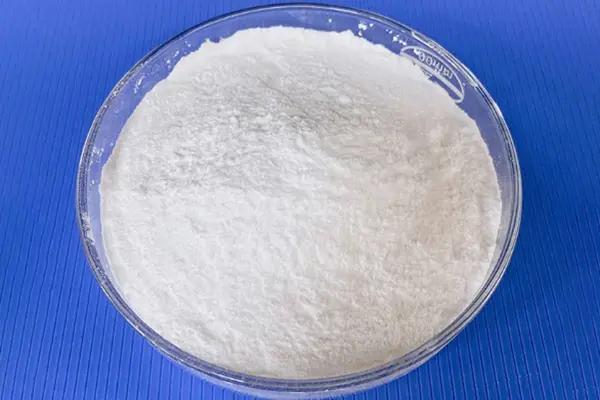Trimagnesium phosphate, a white crystalline powder composed of magnesium and phosphate ions, is a compound that plays a vital role in various industries due to its wide-ranging applications. Its uses extend from food and nutrition to pharmaceuticals and industrial manufacturing. But what exactly is trimagnesium phosphate used for, and why is it so valuable in these sectors? This article takes a closer look at the diverse applications of trimagnesium phosphate and explores its importance in everyday products.
The Chemical Composition of Trimagnesium Phosphate
Trimagnesium phosphate (Mg₃(PO₄)₂) is a naturally occurring mineral that can also be synthesized for commercial use. It consists of magnesium, an essential mineral for human health, and phosphate, a key component in biological processes. Due to its non-toxic, biocompatible nature, trimagnesium phosphate is often used in products where safety and health benefits are paramount.
Uses in the Food Industry
One of the most prominent uses of trimagnesium phosphate is as a food additive. It serves several purposes, including acting as an anti-caking agent, acidity regulator, and dietary supplement.
- Anti-Caking Agent
In the food industry, trimagnesium phosphate is often added to powdered or granulated products to prevent clumping or sticking. This anti-caking property is essential in products such as powdered milk, salt, sugar, and spices, where moisture can cause clumping. By absorbing excess moisture, trimagnesium phosphate ensures that these products remain free-flowing and easy to use, improving their shelf life and quality. - Acidity Regulator
Trimagnesium phosphate also functions as an acidity regulator in certain food products, helping to maintain a stable pH level. This is particularly useful in processed foods, where pH control is critical for flavor, texture, and preservation. By controlling acidity levels, trimagnesium phosphate enhances the stability of products like processed cheese, baked goods, and beverages. - Magnesium Supplement
As a source of magnesium, trimagnesium phosphate is sometimes added to foods and dietary supplements to boost magnesium intake. Magnesium is an essential nutrient involved in numerous bodily functions, including muscle contraction, nerve transmission, and bone health. For individuals who may be deficient in magnesium, consuming fortified foods or supplements containing trimagnesium phosphate can help meet their nutritional needs.
Applications in Pharmaceuticals and Medicine
In the pharmaceutical industry, trimagnesium phosphate has several uses due to its bioavailability and safety profile. It is commonly found in antacids, dietary supplements, and medications that require a source of magnesium.
- Antacids
Trimagnesium phosphate is often used in the formulation of antacids, which are medications designed to neutralize stomach acid and relieve symptoms of indigestion, heartburn, and acid reflux. Because magnesium is alkaline, it helps to counteract excess stomach acid, providing quick relief from discomfort. Additionally, its phosphate content helps buffer the stomach lining, offering further protection against acid irritation. - Magnesium Supplements
For individuals with magnesium deficiencies, pharmaceutical-grade trimagnesium phosphate is included in oral magnesium supplements. This compound is well-tolerated by the body and provides a bioavailable source of magnesium, helping to alleviate symptoms of deficiency such as muscle cramps, fatigue, and irregular heartbeats.
Industrial and Manufacturing Uses
Trimagnesium phosphate is not just limited to food and pharmaceuticals; it also plays a role in various industrial applications.
- Fire Retardants
In the manufacturing sector, trimagnesium phosphate is sometimes used as a component in fire retardants. Magnesium phosphate compounds are known for their ability to resist high temperatures, making them useful in materials that need fire-resistant properties. For example, certain coatings, textiles, and construction materials may contain trimagnesium phosphate to enhance their fire resistance. - Ceramics and Glass Production
Another industrial application of trimagnesium phosphate is in ceramics and glass production. Magnesium phosphate compounds are often used in the manufacturing process to improve the durability, heat resistance, and structural integrity of ceramic and glass products. These properties make trimagnesium phosphate an essential additive in the production of items such as tiles, glassware, and high-temperature industrial components.
Environmental and Agricultural Uses
Trimagnesium phosphate can also be found in agricultural products and environmental applications.
- Fertilizers
In agriculture, trimagnesium phosphate is sometimes used as a phosphate source in fertilizers. Phosphorus is a critical nutrient for plant growth, helping to stimulate root development and improve the overall health of crops. When used in fertilizers, trimagnesium phosphate provides a slow-release form of phosphorus, ensuring that plants receive a steady supply of this essential nutrient over time. - Water Treatment
In environmental applications, trimagnesium phosphate is used in water treatment processes to remove contaminants like heavy metals and phosphates from wastewater. Its ability to bind with impurities makes it a valuable tool in improving water quality in both industrial and municipal water treatment facilities.
Conclusion
Trimagnesium phosphate is a versatile compound with applications spanning multiple industries, from food and pharmaceuticals to manufacturing and agriculture. As a food additive, it ensures the quality and stability of various products, while its role in medicine helps address nutritional deficiencies and digestive issues. In industrial processes, its fire-resistant and structural-enhancing properties make it indispensable in manufacturing. Given its safety and effectiveness, trimagnesium phosphate will likely continue to play a crucial role in various sectors for years to come.
Post time: Sep-12-2024











